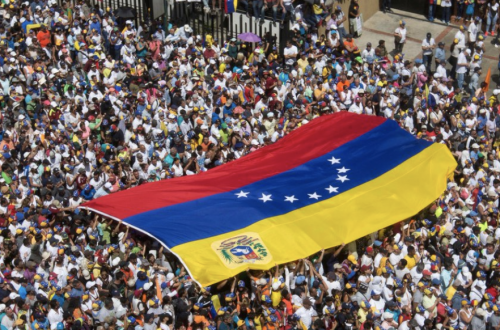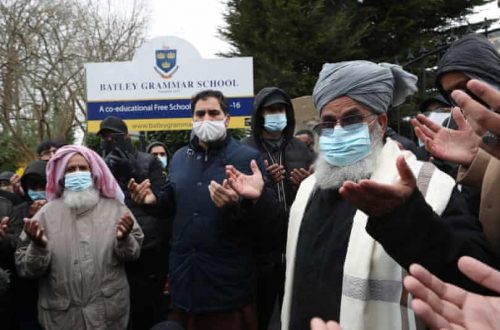On the morning of May 18th 1941 23 Jewish commandos belonging to the Palmach’s naval unit set sail for Vichy Lebanon. With them sailed Major Anthony Palmer, an observer from the Special Operations Executive. Their target was an oil refinery in Tripoli. The codename of the operation; Boatswain.
None of the 24 were ever heard from again and no one knows what really happened to them.
The boat was carrying the best and brightest that the Yishuv had. The 23 sailors on board that boat constituted the future of the Israeli Navy and Naval commandos. Their loss was devastating. Perhaps it was because the loss was so devastating that many simply couldn’t bring themselves to believe that those 24 men who disappeared without trace had simply drowned at sea.
The Palmach museum claimed to have more proof of what happend to these commandos. They held an event just before Yom Kippur called 23 Fallen Soldiers; the Final Investigation?
By the time I responded to their email they were already oversubscribed and had no room left in their 400 seat auditorium for me. I went anyway and low and behold they managed to find a seat for me. I was one of the lucky ones. The event was so oversubscribed that extra plastic seats were brought into the isles and still people crowded in, content merely to stand and watch.
The speakers at this event were two archivists, one of whom was Nir Arieli a former commander of the IDF’s missing soldiers unit as well as rear admiral Nir Maor, curator of the Clandestine Immigration and Naval Museum. He is a former submarine commander.
On my way into the event I bumped into the man who conquered the Sinai Desert in the 6 Day War Yeshiahu “Shaike” Gavish. He’s the head of the Palmach Veterans Association now. I shake his hand, the man’s 90, he doesn’t look it, he walks around on legs that move with such military precision you’d think he’s marching on parade. The man’s surrounded by people, he’s shaking hands, making jokes, he is an emperor in this place built to ensure that the exploits of himself people like him aren’t forgotten.
I look around me, all of the people here are running around greeting each other like long lost comrades. Because they are.
The war wounds are unmissable. There’s a man in a wheelchair who has only one leg, there’s a man missing an ear, another missing a finger. This is the generation of Jewish warriors who didn’t learn about the British mandate by watching a documentary about it. They lived it and they fought through it. The reason that Israel exists is because of the men and women who are hugging each other and shaking Shaike’s hand right in front of me.
He promises me that we’ll chat after the event. With that promise in my pocket I move over to the ticket desk to try and argue that I should be allowed in. I smile a lot and talk fast, in the end they find a seat for me. I make my way inside, past the black and white pictures on the wall of youths shouldering Sten guns and wearing Palmach garb. I make my way upstairs to the balcony in the amphitheater and take my seat surrounded by the generation who were once the fighting youth of Israel.
The stage below me had five musicians warming up. A projected image of two ears of wheat and a sword, the emblem of the Palmach is displayed on a white screen. Before the lectures begin the musicians begin playing, a man down below has grabbed a microphone and is tells everyone to sing along. The audience don’t need encouragement as the lyrics to Palmach campfire songs are beamed onto the white screen and the audience sings along as if we’re all sitting by Palmach campfires armed with ancient rifles and the certainty that a Jewish state can be brought into being, if only we fight hard enough to make it happen.
They don’t stop with one or two songs but get through five, one of which seems to be in Yiddish called Vite en Mitten Yam. I am the only one sitting in my seat not singing. I don’t know the words. I am stunned. They have taken me away from an amphitheatre in Ramat Gan to Tel Chai on the eve of battle or to Latrun during one of the many attempts to wrest that strategic objective from the hands of Jordan’s British trained and led Arab Legion.
For these people this isn’t history, this is their lives.
When the songs end the lectures begin. One by one the lecturers stand up and explain in measured, scientific tones exactly why the tiny, under powered boat that the commandos used was incapable even of arriving at the Tripoli target with 24 commandos on board. Admiral Maor made it clear that it would have taken the boat so long to arrive at the target that they wouldn’t even have had enough darkness to carryout the raid and would have had to abort. He checked the tides and the currents for the day of the misson. He also knew that the operation had left Haifa an hour later than the 0600 start time the operational plan called for meaning even less chance of having the necessary darkness. “If they made it as far as Tripoli they would have aborted and headed for the nearest friendly port, Cyprus” he asserted.
Two academics, both of whom were introduced as having “worked in the Ministry of Defence”; Dr Moshe Amioz and Nir Maor presented the “new archival evidence” that had been promised us in the invitation. It turned out that it wasn’t new information on the fate of the commandos so much as evidence that dispensed with the rumors and conspiracy theories that some of the commandos had in fact survived and made it to shore.
After exhaustively searching through British, French and German archives on the subject and finding nothing about either a raid on the refinery or picking up any of the commandos. The researchers then moved on to track down every whisper of Jewish and British prisoners being held by the Vichy French in Lebanon. They found records of Jewish prisoners in Lebanon during World War II as well as a mysterious British officer that people held hope had been Palmer. In fact it was an Australian officer by the name of Weston who had been held. He escaped during the war only to be killed in action a year later.
The shutting down of rumors and hope was as devastating as it was based on solid archival evidence. By the time it was all over I couldn’t help but feel for the families of the soldiers who had perhaps come to the Palmach museum in the hope of hearing something a little more inspirational than the cold, hard tones of fact that emanated from the professionals that bore the simple; they really did just drown.
When the last words had been spoken everyone rose, but I was the only one who made for the exit. The band began to play once again. This time they played the hymn of the Palmach and everyone was standing in order to sing it;
“Though the storm is ever mounting
Still our heads remain unbowed.
We are ready to obey all commands,
The Palmach will win – we’ve vowed.
From Metulla to the Negev,
From the desert to the plain,
All our youth defend the homeland,
Till we bring it peace again.
In the eagle’s path we follow,
Over mountain tracks we go,
Among stony heights and caverns
We are seeking out the foe.
When you summon us to battle,
We will be there first by day or night,
We are ready when you give the command,
The Palmach will march in might.”
They sing and then they leave and I with them. I think of my meeting “Shayke”, the man who conquered the Sinai, the man who fought with the Palmach. On my way out I spot Mira Granot. Shayke might be the head of the veterans association but up till about a short time ago Mira was the one who ran it. I ask her if there are any family members of the fallen among the crowd and she points me in the direction of a family all standing together but little apart from the rest of the crowd.
I approach a man who appears to be the oldest among them. He’s at least one generation removed from these Palmachniks. His name’s Yiftach, he was looking at the ground and now he’s looking at me. I ask him if he had family on the boat. He looks back down at the ground, the corners of his lips turn down. I look to my left and see a woman who looks a great deal like him only much younger, she has a sad smile on her face though she is looking at Yiftah and beaming at him somehow.
It’s been over 70 years and the pain is still there. He slowly shakes his head, then looks me in the eye. “No not me, I’m not who you’re looking for” he says and then averts his gaze back to the ground. I turn to his daughter hoping for some help but she simply gives me a sad smile all of her own, while saying nothing.
I leave them alone and look for Shayke. He’s once again surrounded by Palmachnikim. Wherever he goes people want to talk to him.
But not me. I’m done.
I wonder who these people are that still stand up and sing the songs of days long gone, who are these people who fought for Israel before there was an Israel to fight for? Who are these people who pack the Palmach museum 74 years after the death of their friends to hear these academics tell them that there is no hope that any of them survived?
Shayke’s talking animatedly with five guys, all of them around 90 years old just like him. They’re swapping stories of days gone by and I’m reminded of the way me and my friends swap stories of our own whenever we’re together and I wonder if we’ll still be doing it when we’re 90. We certainly don’t have stories like theirs. Stories that have British, Syrian, Egyptian, Iraqi and Palestinians in them. Stories from when the Jews fought the world and won.
I leave Shayke to the old men who were once his soldiers and I walk home, wondering about the fate of the 24 soldiers who set out on a boat one morning and were never seen again.
But were never forgotten.



